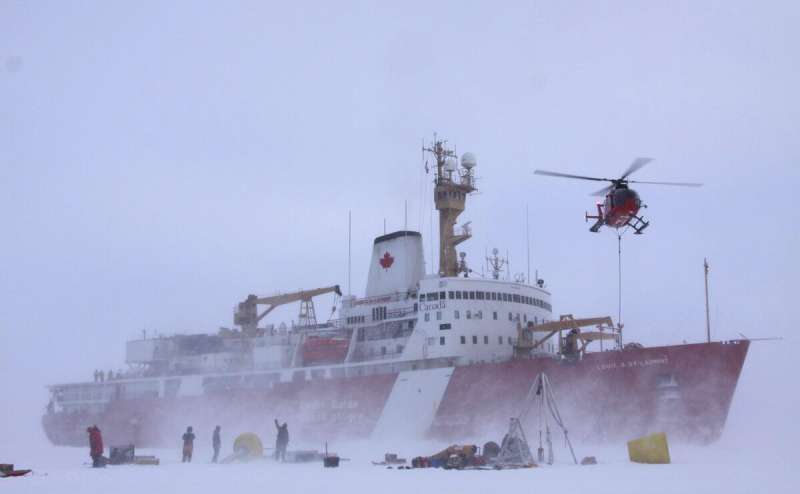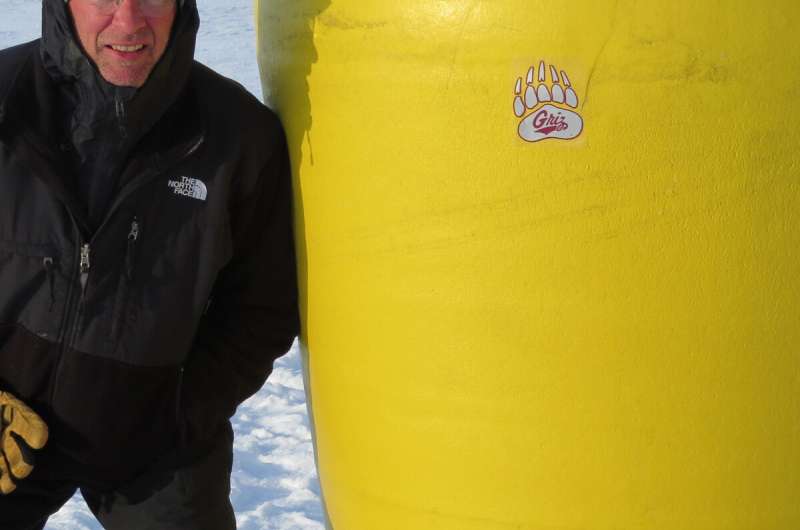Researchers reveal changes in water of Canadian arctic

Melting of Arctic ice due to climate change has exposed more sea surface to an atmosphere with higher concentrations of carbon dioxide. Scientists have long suspected this trend would raise CO2 in Arctic Ocean water.
Now University of Montana researcher Michael DeGrandpre and his patented sensors have helped an international team determine that, indeed, CO2 levels are rising in water across wide swaths of the Arctic Ocean's Canada Basin. However, some areas have exhibited slower increases, suggesting other processes—such as biological uptake of CO2—have counteracted expected increases.
The work was published this month in the journal Nature Climate Change.
DeGrandpre is a UM chemistry professor, and in 2015 he and the company he founded, Sunburst Sensors, won two coveted XPRIZE awards for developing inexpensive, durable sensors to better understand ocean acidification. Sunburst Sensor technology also was used in this recent study for a CO2 measurement system placed on board a Canadian icebreaker, the CCGS Louis S. St. Laurent.
DeGrandpre said ocean measurements are taken while the icebreaker is underway, sometimes crashing through ice one to two meters thick. DeGrandpre and UM research associate Cory Beatty have participated in these research cruises since 2012 with support from the National Science Foundation Office of Polar Programs.

"Because of the inaccessibility of the Arctic and the typically harsh work conditions, we really need a world-class icebreaker to access these areas," DeGrandpre said. "It also has given us a high-quality, consistent dataset, which really helped with this latest study. Most Arctic CO2 datasets are from infrequent cruises that do not visit the same locations year to year."
He said the new study combines sporadic data dating back to 1994 with the more-frequent data they have collected since 2012. DeGrandpre said their consistent dataset will only improve, as NSF recently awarded them an $890,000 grant to continue the icebreaker project through 2023.
Journal information: Nature Climate Change
Provided by University of Montana





















